
Here's my plan to reduce your property taxes
As I look to navigate the path toward equitable economic prosperity for our district's residents and businesses, it's clear that innovative solutions are needed to alleviate middle class financial pressures.
We over-rely on property taxes to fund everything from schools to senior centers. I propose lessening this burden by diversifying revenue sources. In this spirit, I propose an achievable comprehensive plan to rebalance our approach to local funding, ensuring a more sustainable and prosperous future for us all.
Make Money Cheaper
Leverage the Commonwealth's resources for the state's roads and bridges. The substantial need for road and bridge repairs across the district's 18 towns has a combined repair cost that could easily top a quarter of a billion dollars. That doesn't include money for municipal buildings, EMS/fire, schools, or housing. We have an immense need for capital. Note that the funding formulas are just that: formulaic. The other 159 state reps aren't going to short change their districts to be nice to us. Your state rep has to advance funding options that benefit a broad coalition of districts and their leaders. My plans do just that.
Expand low-interest borrowing. The Massachusetts Clean Water Trust currently offers low-interest loans for water system repairs. I will work toward expanding the types of projects we fund using this model. Massachusetts has $7 billion of reserves in the bank. Let's make using the model of the existing to fund road, bridge, and housing projects. This expansion would significantly reduce the financial burden on towns by providing them access to lower interest rates than the current market rates of 5%-6%, effectively reducing by half the tax dollars on infrastructure investment and avoiding costlier replacements due to deferred maintenance.
Increase Visitor Contributions
Let's tap into the revenue generated by tourism more broadly and effectively. We can significantly reduce the property tax burden by adjusting local taxes on meals and accommodations and other travel-related services. This broader tax base would allow us to nearly double the receipts from meals and raise the tax on accommodations to match those of larger cities, which enjoy rates up to 9%.
Everything on the Table
There myriad ways we can reduce the middle class property tax burden. Here are some examples.
Introduce a homestead exemption. This is common in other states. It recognizes that a community's seniors and families often have less resources than other property owners in a town. Let's create a split tax rate via a homestead exemption to provide relief to those in their primary communities.
Pursue technology and efficiency grants. Seek state and federal grants to increase municipal efficiency through technology. By investing in smart infrastructure and digital services, towns can reduce operational costs over time, savings that can be passed on to residents through lower taxes.
Pursue green energy incentives. Promote the adoption of renewable energy sources by leveraging grants and incentives for solar and wind energy projects on municipal properties. Long-term savings from reduced energy costs can contribute to lowering the operational expenses of local government, thus easing the tax burden on residents.
Expand local economic development. Focus on attracting and retaining businesses that contribute to the tax base without disproportionately relying on local services. This includes offering incentives for small businesses, startups, and green enterprises that can provide jobs and stability to the local economy.
Advocate with respect. Let's recognize the important role wealth plays in the Berkshires. In Stockbridge, fully 1/3 of the cost of dredging the Bowl has been raised from private donors. We received a donation of a million dollar parcel to build affordable housing. Most of our nonprofits would not exist without the generosity of patrons large and small. Do I believe taxes should fall more on those with means? Absolutely. However, I ever never demonize the wealthy. We have to have a mentality of all hands on deck. When folks step up, the right response is easy: Thank you.
Expand PILOT (Payment in Lieu of Taxes) payments for state-owned properties. I will work with district towns with significant non-taxable, state-conserved lands and the state to increase the towns' PILOT payments.
The PILOT program ensures that the state contributes to the local economy and municipal services from which they benefit, even though they are exempt from traditional property taxes, as stated in Chapter 59, Section 5 of the Massachusetts General Laws. The voluntary amount the state pays is negotiated with each town and is often calculated as a percentage of the property tax if the property is not tax-exempt - typically around 25% of the full tax liability.
Given the rising costs of municipal services, I will ask all parties if this is a fair and equitable percentage. If not, I will serve as a bridge between town and state negotiators, fostering dialogue and constructive negotiation.
Advocate for more state revenue sharing. Though the state faces a $1 billion shortfall, I will advocate for a revised formula for state aid that better reflects district towns' current economic realities. This involves pushing for increased state funding for local governments, especially in areas like education and infrastructure, thereby reducing the reliance on property taxes.
Each of these proposals represents a step towards reimagining how we fund the essential services and infrastructure that make our community a great place to live. As your representative, I am dedicated to exploring every avenue to ensure our district's prosperity, guided by the principle that innovative governance can lead to actual savings for our residents.
Adding a Safety Valve to Property Tax Assessments
I spent nearly three years on the Regional School District Planning Board. We worked on a plan to merge our two school districts. It was embraced by some, rejected by others. I’m glad to have served, as it was an incredible learning experience: not only about how schools are funded and operated, but also the hopes and dreams of the parents and children who attend these schools. The message I took away from this experience was that folks want to protect the character of their communities. I heard you loud and clear.
There was one aspect of the proposal that stands out for its novelty: the safety valve. It was designed to ensure that a member town’s assessment would not increase more than a calculated percentage each year when compared to the prior year. I think we need to take this idea to Boston and to apply it to property tax assessments.
Fixing the Algorithm
Let me explain. If your neighbor’s house sells at an eye-popping price, your assessment and tax bill may go up, in some instances by an extraordinary amount. Same is true if home values in your neighborhood increase due to renovations or rebuilds. This creates winners and losers with yearly tax assessments. Even though we kept our town’s budget to an increase of 2% or less these past two years, some saw significant tax increases due to the algorithm the town is forced to use by the state to complete the assessments. Of course, others saw a decrease, as the total amount raised by taxes went up only to cover the overall budget.
The algorithm, a fancy word for the formula, works in a way that is clear to almost no one outside of the Department of Revenue.
This is especially difficult on families and seniors on a budget. I have witnessed multiple instances where homes’ assessed values climbed 15% - 30% or more in a single year, just because of the algorithm’s calculation of its increased value. For those on a fixed budget, this can make the difference between being able to stay in your home and being forced to sell due to the tax burden.
Simply put, there should be a cap on the amount of increase an unrenovated home should be subject to. This would give each homeowner better predictability when the tax bill comes in.
Look, I studied economics, specifically advanced microeconomic theory, and am quite good at math. Advanced math. If I win this thing, I plan on doing a deep dive into how this algorithm works, and how we can improve it to keep all of our residents in our homes. On a personal note, this is how I work. Look for a good idea from one initiative. See how it fits in a larger context.
PS: Running costs money. I need your help. If you believe, like I do, that we have hope, that we can control our own destiny, that we can move the needle on the seemingly intractable issues we face, please consider donating to my campaign.
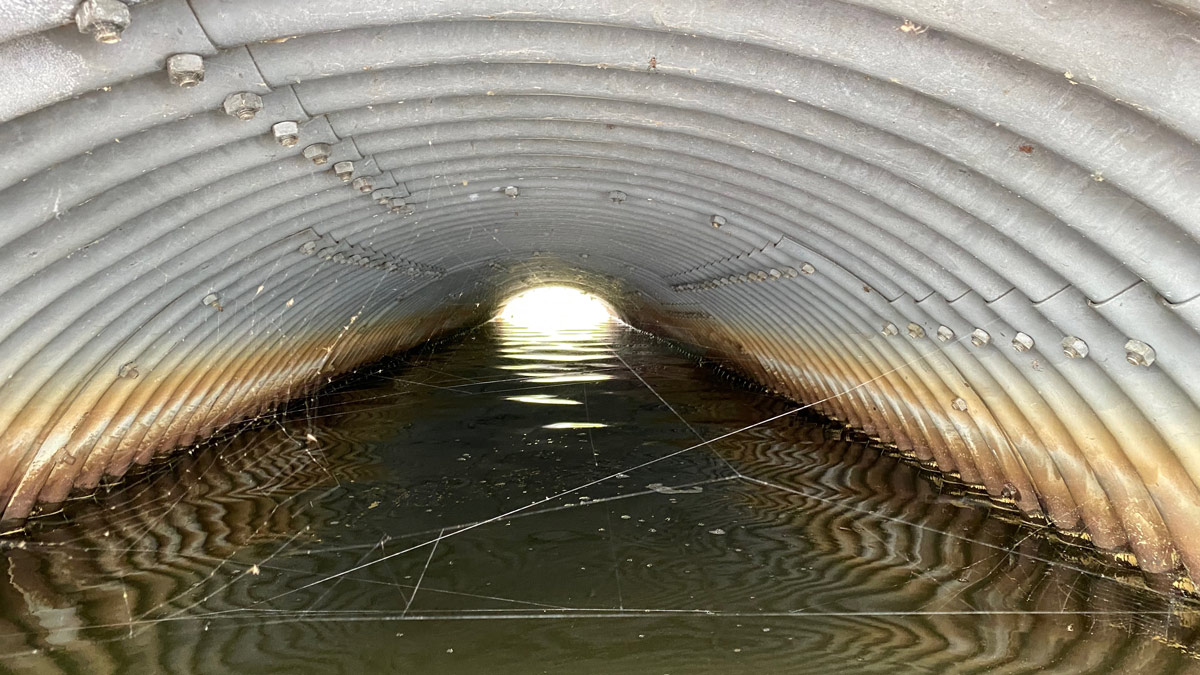
Canoeing under the Stockbridge Bowl causeway. Yes, those are spider webs.
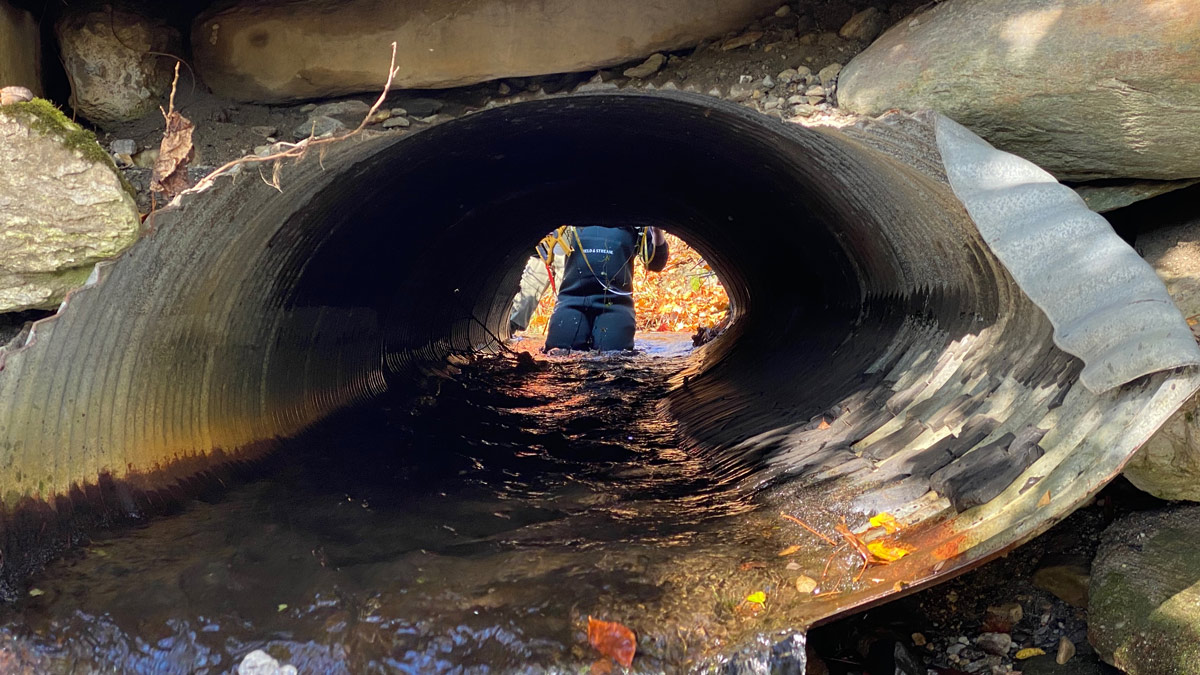
Inspecting a Stockbridge Culvert with a Greenagers team.
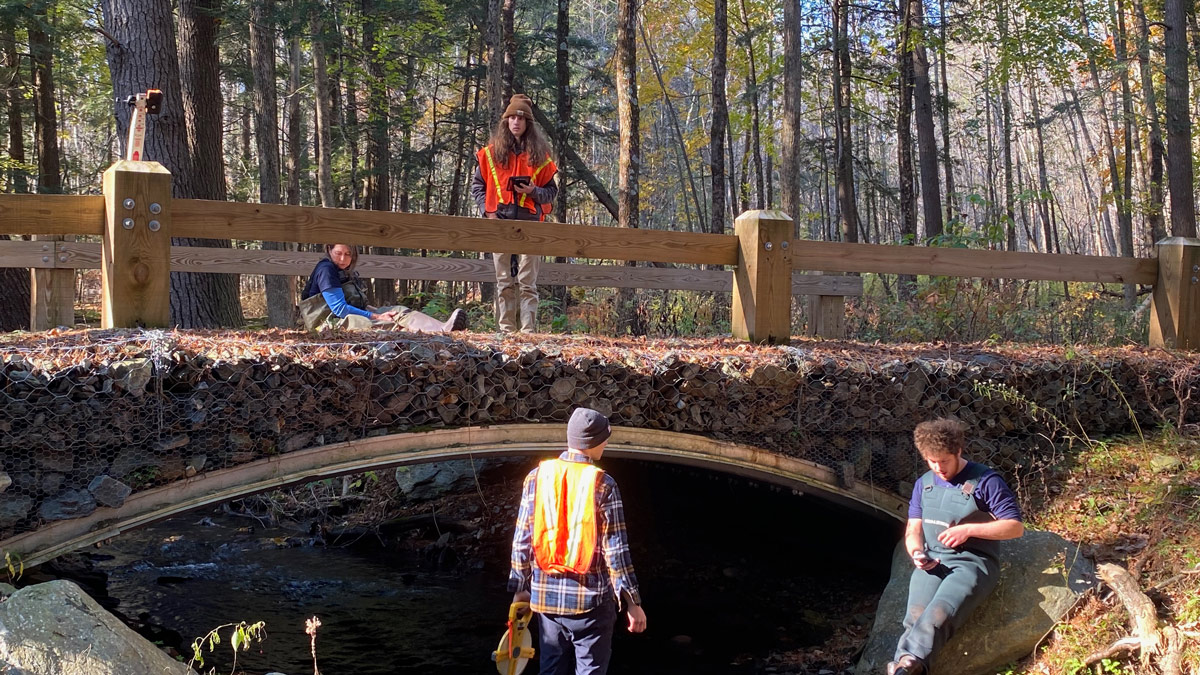
Another Greenagers inspection. What a great organization!
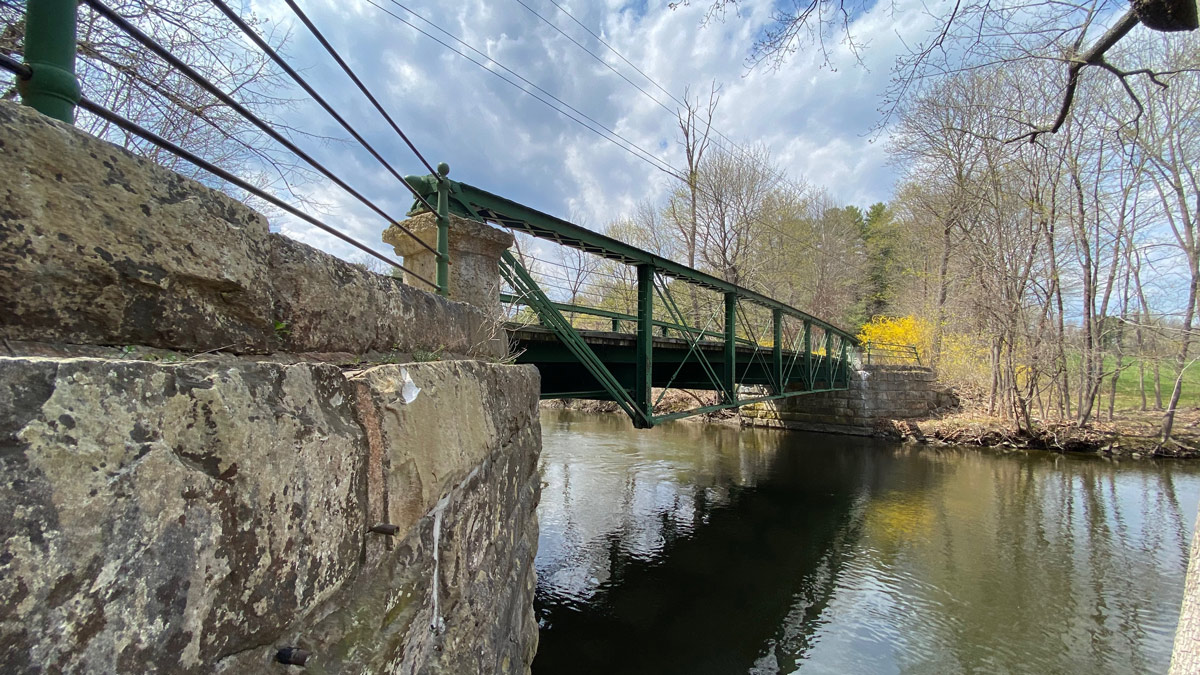
Butler Bridge in Stockbridge.
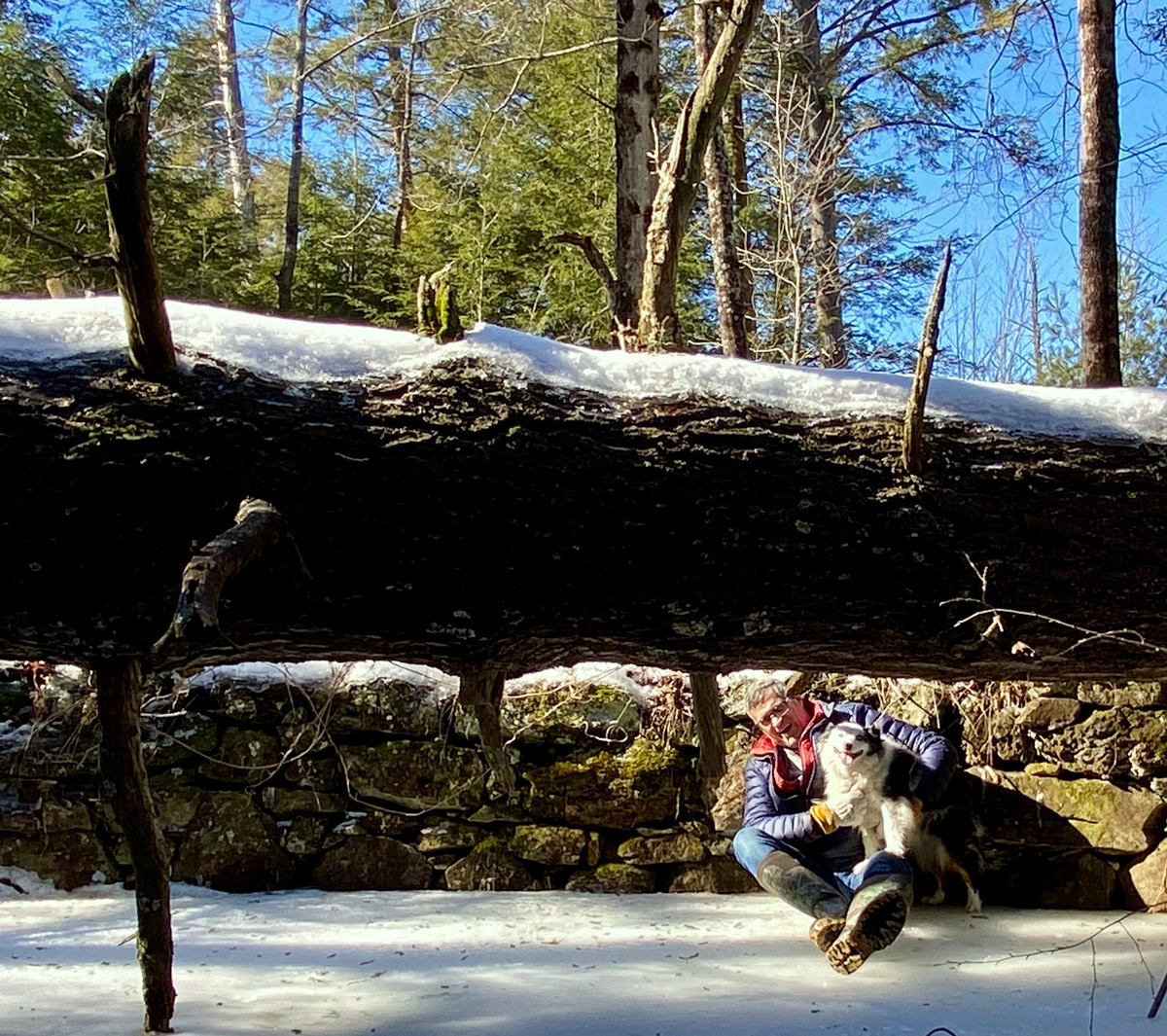
Ice time with Sadie.

